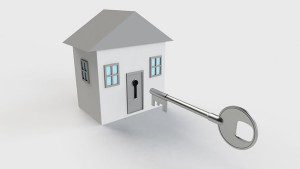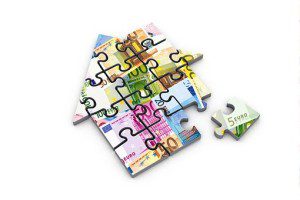What Your Bank Isn’t Telling You About FeesWhat Your Bank Isn’t Telling You About Fees
When it comes to managing your money, most people trust their bank to be upfront and transparent. But the truth is, banks often keep the full story about fees under wraps. While some charges are obvious, like ATM fees or overdraft penalties, there are plenty of hidden or confusing fees that can quietly chip away at your balance. Knowing what banks don’t always tell you can save you hundreds of dollars and help you take control of your finances. Here’s a look behind the scenes at the fees your bank might be sneaking past you.
The Sneaky World of Maintenance Fees
Monthly maintenance fees are one of the most common ways banks earn extra revenue. They might seem small—sometimes just a few dollars per month—but they add up over time. What’s worse is that many banks don’t advertise these fees or bury them in complicated terms. Some accounts waive these fees if you meet certain criteria, like maintaining a minimum balance or having direct deposits. But if you’re not paying attention, these monthly charges can quietly drain your funds without you realizing it.
Overdraft Fees: More Punishment Than Protection

Overdraft fees are infamous for catching customers off guard. Many banks charge a hefty fee every time you accidentally spend more than your available balance. What you might not know is that some banks charge multiple overdraft fees in a single day if you make several transactions that go over the limit. Additionally, the order in which your bank processes transactions can affect how many fees you rack up. This system often benefits the bank more than you, so it pays to monitor your account carefully and avoid overdrawing whenever possible.
ATM Fees: Not Just When You Use Another Bank’s Machine
Most people know that using an out-of-network ATM will trigger fees, but what’s less obvious is that some banks charge you even when you use your own bank’s ATM—if it’s considered “off-site” or outside a certain region. Plus, the ATM operator may also charge you a surcharge on top of your bank’s fee. These double fees can add up fast, especially if you rely heavily on cash. To avoid surprises, it’s best to stick to ATMs marked as part of your bank’s network and keep an eye on fee disclosures.
Foreign Transaction Fees: The Hidden Cost of Travel

If you travel internationally or shop online from overseas retailers, foreign transaction fees can sneak into your purchases unnoticed. Typically, banks charge a percentage of every transaction made in a foreign currency, which can be around 1% to 3%. Many customers only realize these fees after reviewing their statements. The good news is that some credit cards and accounts waive foreign transaction fees, so if you travel frequently, choosing the right financial product can save you a lot of money.
Service and Miscellaneous Fees That Fly Under the Radar
Beyond the obvious charges, banks have a range of lesser-known fees that can surprise you. These include fees for paper statements, expedited payments, stop payments on checks, returned deposits, and even inactivity fees if your account sits dormant. These small charges may seem minor, but they can accumulate quickly if you’re not careful. Being aware of these can help you ask better questions when opening accounts or contacting your bank about charges you don’t understand.
Banks aren’t always as transparent as we’d like when it comes to fees. The best defense is to stay informed, read the fine print, and regularly review your statements for any unfamiliar charges. By understanding the hidden fees your bank might not be telling you about, you can avoid unnecessary expenses and keep more of your hard-earned money in your pocket. Taking a proactive approach to banking fees pays off in the long run—and helps you stay in control of your finances.…







 The next step is to get pre-approved for a mortgage loan. This lets lenders know that you are serious about buying a home and can pay back the loan. Once you are pre-approved, you can start looking for a house that is within your budget and meets your needs. Mortgage pre-approval also helps you shop for houses with confidence and can help speed up the home-buying process. So it’s definitely worth taking the time to do this.
The next step is to get pre-approved for a mortgage loan. This lets lenders know that you are serious about buying a home and can pay back the loan. Once you are pre-approved, you can start looking for a house that is within your budget and meets your needs. Mortgage pre-approval also helps you shop for houses with confidence and can help speed up the home-buying process. So it’s definitely worth taking the time to do this.
 We all understand that not everyone is ready to hire a financial advisor. If you need one, you need to take your time and determine your goals to know the financial advisor you need. In most cases, it is crucial to note that financial experts can be of immense help when trying to map out your future.
We all understand that not everyone is ready to hire a financial advisor. If you need one, you need to take your time and determine your goals to know the financial advisor you need. In most cases, it is crucial to note that financial experts can be of immense help when trying to map out your future. When you need a financial advisor, another most straightforward way to consider in this process is to get recommendations from the people you trust. You can ask people with similar financial goals or situations to yours and know who they used. By doing this, you will get professional financial advisors.
When you need a financial advisor, another most straightforward way to consider in this process is to get recommendations from the people you trust. You can ask people with similar financial goals or situations to yours and know who they used. By doing this, you will get professional financial advisors. Nowadays, there are bridging loans for all types of clients ranging from individuals to companies. Thus, if you have excellent credit status but it has become difficult to obtain loans and mortgages you can apply for these loans. Also, if you are self-employed and have a poor credit history, you can qualify for these types of loans. Usually, all forms of security are taken into account, from commercial, semi-commercial, and residential properties or land. The truth is that properties can be partially or fully developed. Also, they can be in need of renovation or in perfect condition. You can take a bridging loan on a wide range of securities and clients.
Nowadays, there are bridging loans for all types of clients ranging from individuals to companies. Thus, if you have excellent credit status but it has become difficult to obtain loans and mortgages you can apply for these loans. Also, if you are self-employed and have a poor credit history, you can qualify for these types of loans. Usually, all forms of security are taken into account, from commercial, semi-commercial, and residential properties or land. The truth is that properties can be partially or fully developed. Also, they can be in need of renovation or in perfect condition. You can take a bridging loan on a wide range of securities and clients. For most clients, they are not aware of where they can get financing and to what extent. It is a good idea to carry out extensive research to know answers to these vital questions. This is necessary to help them make informed decisions and plan ahead. You can get bridging loans from non-mainstream lenders to high street banks. Usually, the banks are a bit slower as compared to non-mainstream lenders. For instance, the normal turnaround is just seven working days.…
For most clients, they are not aware of where they can get financing and to what extent. It is a good idea to carry out extensive research to know answers to these vital questions. This is necessary to help them make informed decisions and plan ahead. You can get bridging loans from non-mainstream lenders to high street banks. Usually, the banks are a bit slower as compared to non-mainstream lenders. For instance, the normal turnaround is just seven working days.…